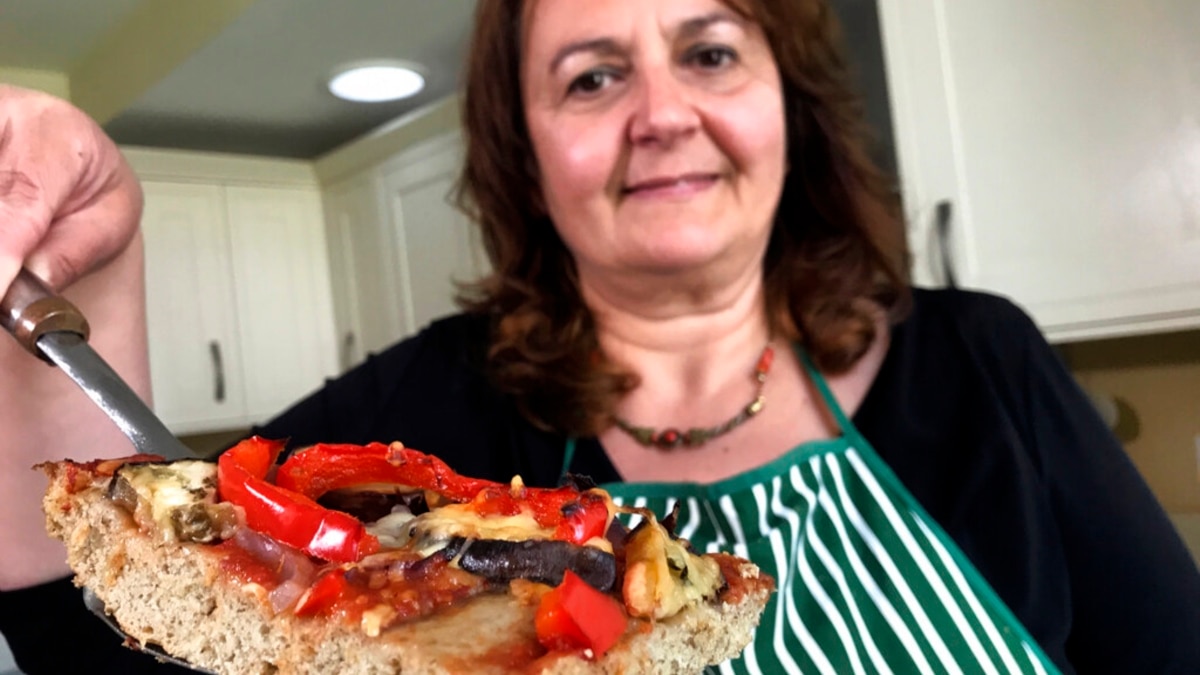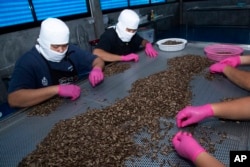Bulgaria Abuzz With Online Rumors About ‘EU Plot’ To Make Everyone Eat Insects

SOFIA — He’s a fringe politician and social media influencer in Bulgaria who claims he’s on a crusade to save the nation. Georgi Georgiev Gotti recently posted on Facebook that the European Commission wants to “give cancer” to his compatriots.
How?
EU bureaucrats will allow food producers to add powdered insects to a list of foods, the combination of which, according to Gotti, will create carcinogens.
With no science to back his bogus claim, the Facebook post has gone viral, shared more than 1,000 times and generating hundreds of reactions, many of them seething.
As the disinformation spread, the rumor mutated, with some social media posters adding further nefarious EU intentions to force people to consume insects. They claimed powdered insects would be added to many foods, including bread, but it would all be shrouded in secrecy, with no labeling required.
While it is hard to prove the rumors are part of an orchestrated Kremlin campaign, social media posts on the topic spiked after one of Russia’s most powerful media figures, Dmitry Kiselyov, mentioned it on his popular show on state TV in late January. Russia regularly spreads disinformation in Europe, with the aim of sowing mistrust and doubt of EU institutions.
Milena Yakimova, a sociology professor at Sofia University who also monitors Russian propaganda efforts in Bulgaria, said this latest disinformation campaign aims, in part, to “show us that Europe is foreign to us.”
The current campaign appears to be largely waged by individuals and organizations who are at least sympathetic to Russia. Bulgaria has witnessed similar campaigns. The Balkan country suffered the EU’s highest COVID-19 fatalities, in part due to low vaccinations rates as medical misinformation turned many into skeptics.
Recently, social media was abuzz with false claims about an imminent military mobilization that would end with Bulgarian men being sent to Ukraine to fight against invading Russian troops.
The insect rumors do have a sprinkling of truth. The European Commission — the EU’s top executive body — has recently approved more insects as so-called novel foods after the EU’s food safety regulator, the European Food Safety Authority (EFSA), gave its stamp of approval.
Insects are part of the daily diet for about one-quarter of the globe. It’s thought that eating more bugs and less meat and poultry could be good not for only human health but the environment. Research by the UN’s Food and Agriculture Organization shows that crickets require six times less feed than cattle to create the same amount of protein.
In October 2014, the EFSA said its research found that houseflies, crickets, and silkworms can be safe, nutritious, and more environmentally friendly alternatives to chicken, beef, or pork. The EFSA analysis said the farming of insects could lead to lower emissions of greenhouse gases and ammonia than cattle or pigs and higher efficiency in converting feed to protein.
In May 2021, the European Commission announced the first insect — yellow mealworms, the larva form of mealworms — had been approved as a so-called novel food in the EU. By August 2022, the European Commission said a total of three insects — yellow mealworms, house crickets, and migratory locusts — had been authorized as novel foods inside the EU.
In January of this year, the European Commission approved the maggot-like larvae of lesser mealworms — a type of shiny black beetle — and house crickets — this time in powdered form — as novel food as well.
In both cases, the European Commission approval applies to specific items produced by two companies. It spells out in which types of food products they can be used — including bread — and that these items must be labeled.
Following the latest European Commission insect rulings at the start of the year, social media in Bulgaria was abuzz with posts — including from rabble-rouser Gotti — mentioning grasshoppers, which are not mentioned in the EU decision. Data from Google in Bulgaria shows searches for grasshoppers and crickets also spiked around the same time, RFE/RL’s Bulgarian Service found, peaking on January 30.
Also creeping into other posts were false claims that chitins — the exoskeletons of crickets and other insects — would cause cancer in humans.
RFE/RL’s Bulgarian Service found that one of the first Facebook posts, from January 26, to spread the poison claims and gain traction came from a Facebook account of an individual identified as Nadia Ivanova.
A check of Ivanova’s Facebook page turns up multiple posts praising Russian President Vladimir Putin and several mentioning Nikolai Malinov, a former Bulgarian lawmaker and the head of a pro-Russian lobby group in Bulgaria. In 2019, Malinov traveled to Moscow to personally receive an award from Putin. He is now on trial in Bulgaria on charges of spying for Russia.
Ivanova’s January 26 Facebook post was quickly seized on by others on Facebook, including by a person identified as Lisa Miller, who posted it on the page of Varna Without Censorship, a Bulgarian network that accuses mainstream media of an anti-Russian bias, among other things.
Miller’s profile appears to be fake, the photos taken from a photo bank, a check by RFE/RL’s Bulgarian Service indicated. The account often shares many conspiracy theories and fake news.
The topic gained further traction in Bulgaria and elsewhere, after Kiselyov, a firebrand pro-Putin TV host, offered up his musings on his Russian First Channel program on January 29.
“Cultural transformation in Europe has been going on for a long time and certainly has a domestic dimension,” began Kiselyov. He continued with a familiar narrative in Russia that people in Europe are asked to do less laundry, use fewer appliances, limit the temperature in their rooms, before adding: “And now they are also advised to eat insects.”
“They are persuading Europeans to bathe less often and eat insects,” concludes Kiselyov, who is often described as one of the Kremlin’s top propagandists.
Kiselyov was not alone in sinisterly spinning the EU decision. In France, right-wing politician Laurent Duplomb also accused EU bureaucrats of nefarious intentions.
“We cannot let the French eat insects without their knowledge,” he wrote on Twitter.
A transcript of Kiselyov’s January 29 show quickly spread on social media in Bulgaria, shared by Ivanova, Miller, and Gotti.
Sociology professor Yakimova, who is also a researcher at the Sofia-based Foundation for Humanitarian and Social Research, a project that monitors Russian propaganda in Bulgaria, said the “news” on insects for human consumption has flooded the information space in Bulgaria in recent weeks.
Yakimova says that the disinformation is meant to sow fissures within the EU.
“This is an attack on European solidarity and exploits long-standing fears in the West about insects,” she said.






















You must be logged in to post a comment Login